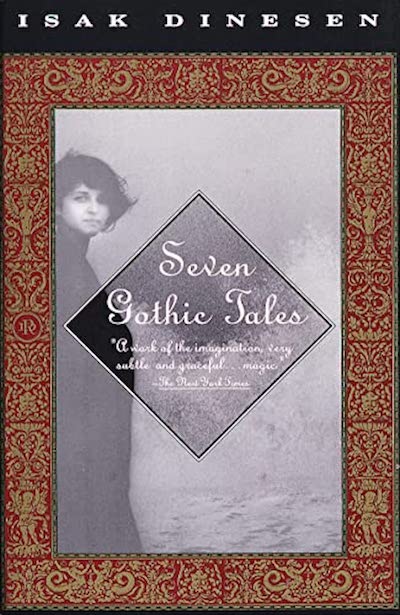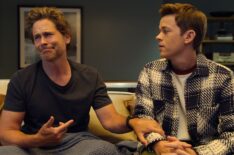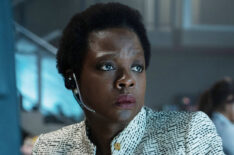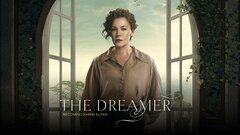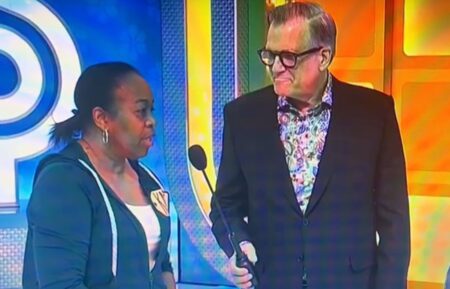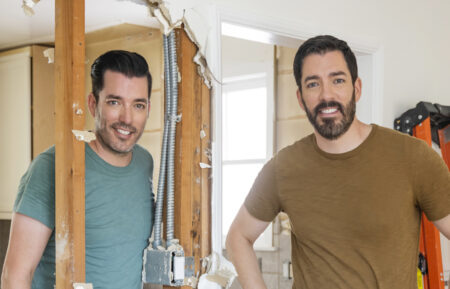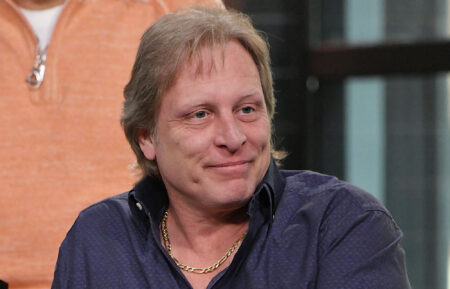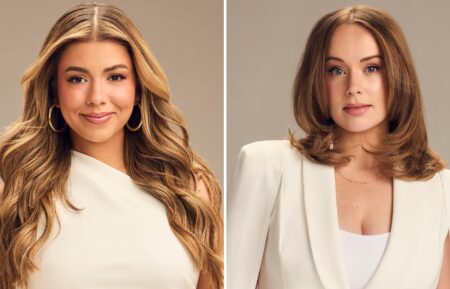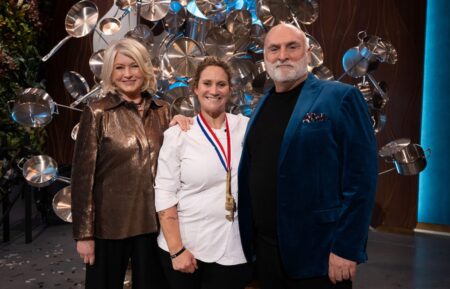Connie Nielsen Talks Transforming Into Author Karen Blixen for ‘The Dreamer’
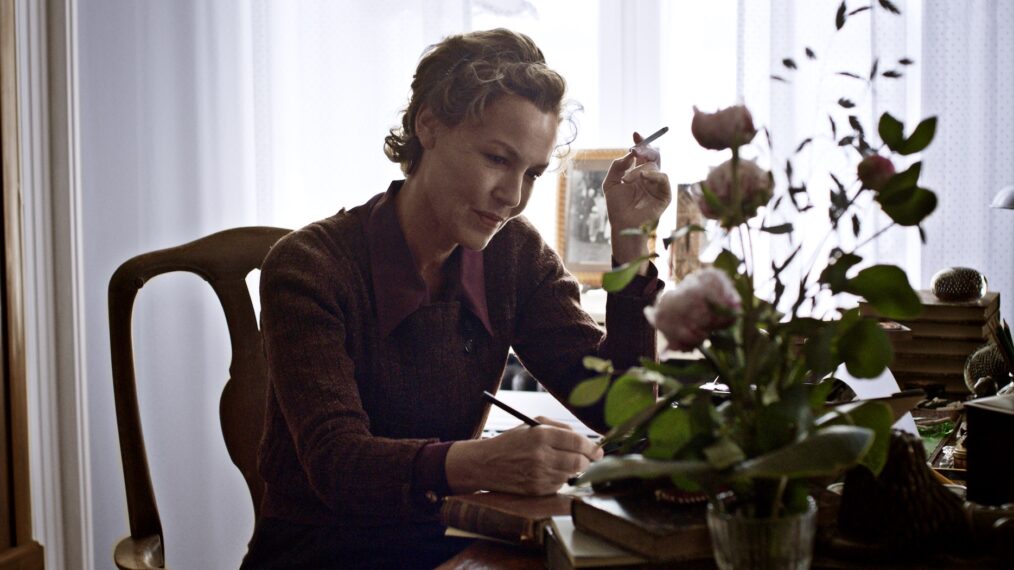
Q&A
[Warning: The following contains MAJOR spoilers for The Dreamer – Becoming Karen Blixen series premiere.]
Connie Nielsen takes on a dream role in The Dreamer – Becoming Karen Blixen. The Danish series premieres Thursday, March 30 on Nordic streamer Viaplay. In it, Nielsen is a far cry from the physical prowess of Wonder Woman‘s Queen Hippolyta, but the Danish actor displays an emotional strength as Denmark’s most famous modern writer who penned Seven Gothic Tales, Out of Africa, Babette’s Feast, and more (often under the pseudonym Isak Dinesen).
The Dreamer “tells the story of one woman’s struggle to find her place in life while freeing herself from the expectations of family and society,” the logline describes. Set in the 1930s, the series begins with the end of the author’s time in East Africa. It was far from a happy ending. Divorced from her husband, her lover dead, and her Kenyan farm gone under, the penniless Blixen must return home to Denmark to live with her mother.
The future feels bleak for Blixen as her family offers the little financial support they can, having all lost money in the farm’s collapse. The rest of the series tracks Blixen’s journey from her lowest point to becoming a renowned writer, including visualizations of her interior life and the magical universe of her stories. Expect the series to jump between the biopic aspect and the screen adaptations of her famous works throughout the six-episode season, all streaming now.
The Gladiator alum produces the series in addition to starring alongside Lars Mikkelsen and Lochlann Ó Mearáin, along with an ensemble of award-winning Nordic actors Hanne Uldal, Joachim Fjelstrup, Lene Maria Christensen, Solbjørg Højfeldt, and Johannes Kuhnke.
Here, Nielsen discusses the series with TV Insider.
[Content warning: The following contains discussion of suicide.]
The series begins with a sad ending for Karen, the conclusion of her time in Kenya. How does the title The Dreamer: Becoming Karen Blixen encapsulate what happens next?
Connie Nielsen: It’s a story about a woman who has lost everything and who uses her imagination to dream herself into a better life. It’s quite literally what she did. And she also wrote, as part of that first book, a short story — or a tale, like she called them — called The Dreamers, where you see these four different archetypes of women, sort of like mysterious women who represent like the virtuous woman, the whore, the woman of ideas, the woman of action, but also the artist. And you kind of see Karen in all of these women.
But interestingly in that story, she also describes the men who love these separate women, and in a very strange way shows that this woman cannot be loved if she is all of those things, because they each want to define her as just that one thing. I think it’s such a wonderful key to understanding the woman behind the writing and using her writing as a key to illuminating what she was thinking about, what it was to be a woman, what it was to be an artist, and how that circumscribes a woman.
I enjoyed seeing Karen’s fictional stories told as she wrote them on screen. Why depict her stories in addition to showing her real life?
Thank you so much for asking that. It’s so important to me. Because when we make films or series about female artists, we tend to focus on their romantic or sex life. We rarely, if ever, watch how she thinks, how she makes her art. And it was incredibly important to me, because in fact, one of the things that made me want to do this series in the first place when I dreamt up this concept was that we would in fact show our audience her process. And by showing what was going on in her life at the same time as she was writing this story, we would use it as a kind of key to unlock her process.
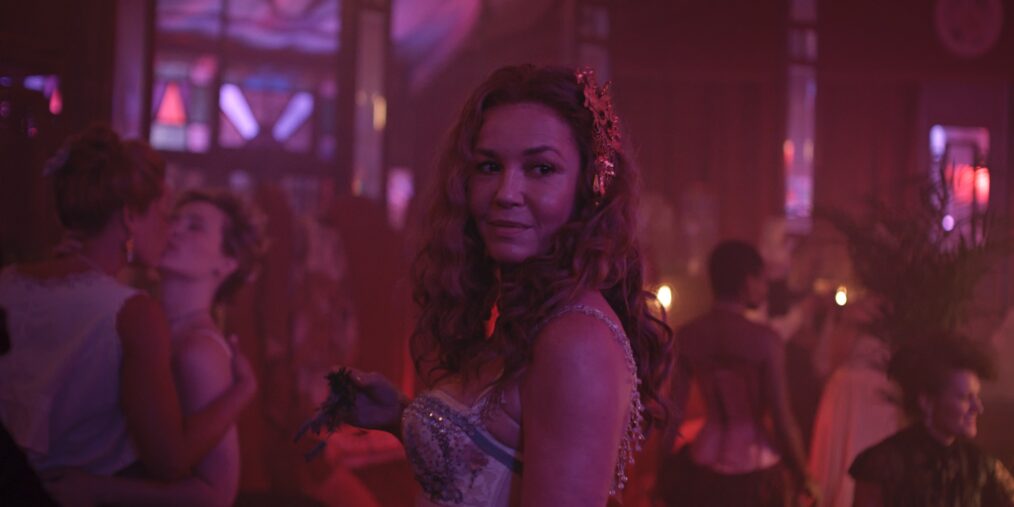
Aske Alexander
Do you think these fictional sequences reflect an escape into a fantasy that helped her cope with her feelings of grief?
No, I think she was a woman of ideas. She was interested in ideas, she was interested in philosophy, in literature in and of itself. How was it structured? What was it trying to say? It was an age of ideas where ideas were incredibly important. And so she was using this idea of setting a tale 150 years ago in the Golden Age, which was aesthetically amazing, but also kind of a tale of a far away land where your fantasy, your imagination becomes super important and you’re transported into places and times where everything’s possible.
It gives you this sense of adventure when you are reading her stories, and that was her point. She always called herself “the storyteller.” She was a storyteller, and she saw herself in the role of the same person who was sitting 3,000 years ago around the fireplace and walking from village to village to sit down with all the villagers and telling the story, the stories that would illuminate the meaning of life, why we were here, how to be good people.
Karen’s mental health is in a very delicate state in the beginning of the series. How does The Dreamer reflect what has and hasn’t changed about the discourse around mental health in the last 100 years?
The fact that almost nobody mentions any part of that incredible breakdown until now when writing or making films about her, I think says a lot about the lengths to which people went to omit any of the letters that she wrote home that basically said goodbye.
I also think it’s important to treat severe depression and suicidal ideation with attention, because a lot of people go through this. Anxiety rates are through the roof, and for young people especially, it feels like, “Well, am I ever gonna have a good paying job? Am I ever gonna have security? What is my future like?” And for my generation, it wasn’t like that. There was just so much opportunity, and so I just feel like talking about it and saying, “Hey, you know, it may look really bleak right now, but if you hang on, if you just hang on, you will not believe what you’re capable of. You will not believe what strength you have.”
But also our story shows how important your family is, how important it is for family members to know that [they are] a part of the solution. You’re part of what will help move this person forward.
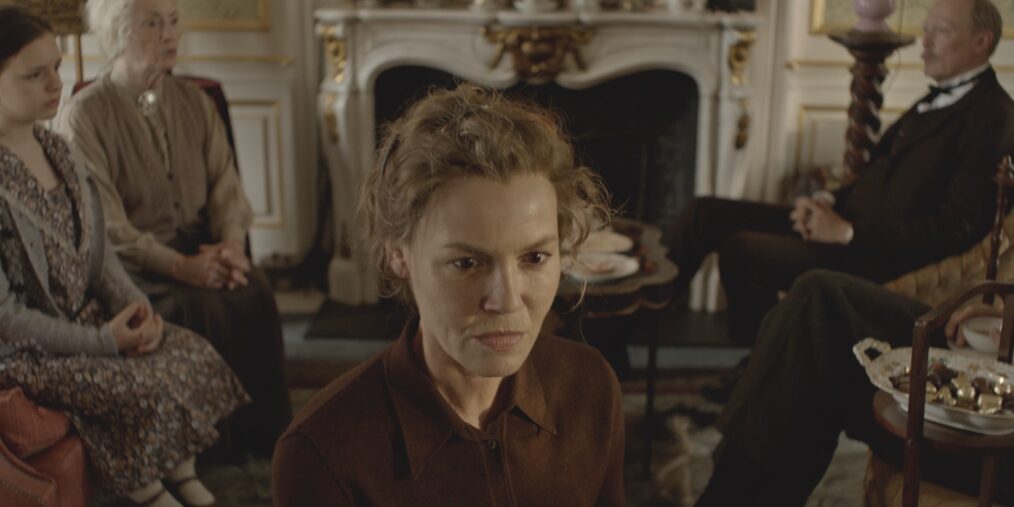
Aske Alexander
I found it interesting that her family openly discusses her suicide attempt. It’s not always discussed in that way in other stories with similar settings and narratives.
And we have this from letters that were circulating between Karen, her mother, and her brother where they were talking about precisely this and how important it was to get her home. Her brother went all the way down to Marseilles to pick her up, and she was just basically skin and bone and in this exhausted, depressive state. And so in those letters you have that happening, but you also have the immense love of this mother who comes to scoop up her kid and say, “I’m here. I’m here for you.” It’s a beautiful love story between [child] and parent.
Karen’s a bit infantilized by her family in the first episode. She notes that she’s now the eldest child and the inheritance from their uncle should be hers. How does this series confront the ageism and sexism of the time period, and do you think Karen would face similar obstacles now?
I don’t think that she would’ve had the same obstacles in terms of the inheritance, but maybe there wouldn’t have been much of an inheritance in these days just because I just don’t think that people are able to hoard wealth from the same type of background that she was from.
I do think that she would have had a blast in today’s world. With her sense of whimsy and adventure, she would’ve had a blast. She would’ve been able to travel even more and see even more, which I think she would’ve loved. And she would’ve been interested in the ideas that we’re talking about regarding gender as well. She was very much a person who was interested in the shifting of roles and the individual freedom that each one of us can lay claim to.
Women in Hollywood often express a lack of variety of roles for women as they age. Ageism and sexism are reflected in The Dreamer as Karen has to write under a pseudonym to get her work published. How did it feel to tell this kind of story given the Hollywood landscape?
I think that I tend to bypass these problems by focusing on what it is I want to say. What am I interested in talking about as an artist? I focus on that. And a lot of times you find that other producers, other artists are interested in that too. I think that, rather than doing something in reaction to something, I would suggest to young women and people in general to focus on what’s real and important to you. You’ll find that people are out there willing to take a chance on you.
Do you see yourself producing more in the future?
Yeah. I have say, I really love this process of putting together a group of people that I enjoyed working with and who had interesting takes on the subject matter. It’s such a wonderful give and take. Throughout that process, I never felt like anyone was being overly proprietary about anything, including myself. We were just all in a very open and giving place. And the same for Viaplay. Viaplay were incredible partners and so supportive even of some of our more esoteric ideas. I have to say, this has been an utter pleasure to work on.
Do you want to continue producing things you’re starring in?
Of course. I see myself also being just a producer. I would love to do that too. But I also am into bringing to life on screen characters that actually exist in real life. The fact is that powerful women exist in the world, and they’re powerful not because they’re young and pretty. They are powerful because of how they think, how they approach problems, how they provide leadership. Those women, they need to see themselves in our public narrative as well. And I, for one, I’m gonna try to fight to continue telling stories that tell the incredible stories of women in the realm of power.
The Dreamer – Becoming Karen Blixen, Streaming Now, Viaplay

